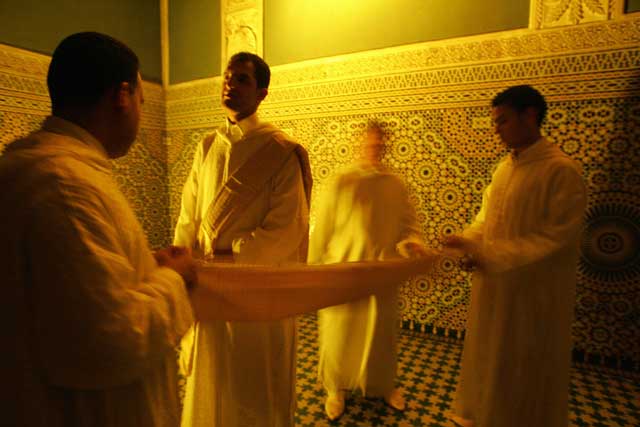Memoirs of a Dervish: Sufis, Mystics and the Sixties, By Robert Irwin

Your support helps us to tell the story
From reproductive rights to climate change to Big Tech, The Independent is on the ground when the story is developing. Whether it's investigating the financials of Elon Musk's pro-Trump PAC or producing our latest documentary, 'The A Word', which shines a light on the American women fighting for reproductive rights, we know how important it is to parse out the facts from the messaging.
At such a critical moment in US history, we need reporters on the ground. Your donation allows us to keep sending journalists to speak to both sides of the story.
The Independent is trusted by Americans across the entire political spectrum. And unlike many other quality news outlets, we choose not to lock Americans out of our reporting and analysis with paywalls. We believe quality journalism should be available to everyone, paid for by those who can afford it.
Your support makes all the difference.This book is stuffed with a lifetime of reading, selective drug-taking, chanting, eastern travel and dancing, all undertaken in the search for God. Or at least the God within us, for Robert Irwin, novelist and scholar of the Arab world, is both sincere in his quest and, like all true searchers, terrified of the final encounter. In this memoir he reflects that "believing one is in love with the Invisible... was perhaps, like falling in love with a girl whom one has never seen". Yet two sentences later he speculates that "the mystic union between man and God was horrific and obscene, like copulation between a man and a shark."
When Irwin was a disciple of the dervish community at Mostaganem in western Algeria, he soon got used to visions. But as his teacher warns him: "if you see a miracle, let it pass like a train before you... and continue on the Road." Similarly, Irwin would later learn that the physical ecstasy of the mystical circular dances of the brotherhood were not an end in themselves but a search for purity and peace.
Irwin was a welcome guest at Mostaganem, though never completely trusted by the Shaykh. This is in refreshing contrast to the vast majority of spiritual memoirs, whose overriding purpose seems to be to raise the dignity and authority of the author. Another surprising element of Memoirs of a Dervish is that it is consistently funny. The text bristles with brilliantly re-imagined comic scenes: the whispered aside that punctuates the pagan ritual, the horrors of being appraised during a naked encounter group.
Irwin is also cruelly accurate with self-mockery, be it the opening line ("It was in my first year at Oxford that I decided I wanted to me a Muslim saint") or in depicting himself: "I was pale and thin and my hands shook from unfocused intensity". He is receptively alive to the other world outside the closed halls of the gurus. The impact of the Velvet Underground, the merits of Donovan versus Dylan, the Sufi origins of the Eric Clapton's "Layla", or the redemptive power of the film If are all treated not as the disposable scum of pop culture, but important enough to be put beside such key influences as John Fowles's The Magus.
But in the process he introduces you to more gurus, sheikhs, spiritual movements and masters than is good for either sanity or cheque-book. Most are revealed to be exploitative charlatans, on the Scientology scale. Others, such as RD Laing and the School of Economic Science, are given savagely short shrift. Fortunately there are a few magnificent, if deeply flawed, characters among this circus of intellects and Islamic-inclined God-searchers. They include the historian Bernard Lewis before his neo-con apotheosis; his successor at SOAS in London, the American-born John Wansbrough; the Ottoman emigré and scholar, Ali Bulent, and a reticent keeper of manuscripts at the British Library, Martin Lings.
Irwin never turns his potent invective on his teachers back at Mostaganem. Indeed, if there is a single heroic figure here, it is Abdullah Faid. A Breton sailor long converted to Islam, he acts as a sort of spiritual assistant to the ruling Shaykh. The sad tale of how he and his master would be treated, first as dissidents, then as potential traitors, by the Algerian Ministry of the Interior is like a dark shadow that grows into a horror story.
I could not put Memoirs of a Dervish down until I had read it twice over. This is a brilliant, free-ranging, mind-enhancing, life-cautioning book. Beware.
Join our commenting forum
Join thought-provoking conversations, follow other Independent readers and see their replies
Comments